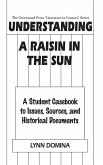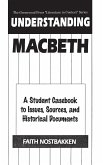In Black Boy, Richard Wright triumphs over an ugly, racist world by fashioning an inspiring, powerful, beautiful, and fictionalized autobiography. To help students understand and appreciate his story in the cultural, political, racial, social, and literary contexts of its time, this casebook provides a rich source of primary historical documents, collateral readings, and commentary. The selection of unique documents is designed to place in sharp relief the issue of pervasive racism in American society. Documents include excerpts from other autobiographies and a novel, legal documents, speeches, an interview, an anthropological study, magazine and newspaper articles, and contemporary editorials. Most of the documents are available in no other printed form. From Frederick Douglass, Booker T. Washington, and W.E.B. Du Bois on the one hand, to Black Codes, Jim Crow laws, and white supremacist pronouncements on the other, Felgar creates a dialogue between the voices of oppressed blacks, including Richard Wright, and those of oppressing whites over the issue of race and racism. Students will be able to analyze a variety of perspectives on this issue from the earliest days of the American republic to the present day. Felgar also includes primary documents on the American dream of success, which has remained elusive for so many blacks. A chapter on the American autobiographical tradition uses excerpts from Ben Franklin's autobiography, as well as from those by Frederick Douglass, Booker T. Washington, and W.E.B. Du Bois, to place Wright squarely in the tradition of this genre and show that Wright was more a believer in the myth of perpetual upward mobility than he realized. In a chapter called The Dream Deferred, documents show how freed blacks were just as enslaved by new and restrictive laws after the Civil War as they had been under slavery. Each chapter concludes with study questions, ideas for written and oral examination, and suggested readings to aid students in examining the issues raised by Wright's autobiography.
Hinweis: Dieser Artikel kann nur an eine deutsche Lieferadresse ausgeliefert werden.
Hinweis: Dieser Artikel kann nur an eine deutsche Lieferadresse ausgeliefert werden.








